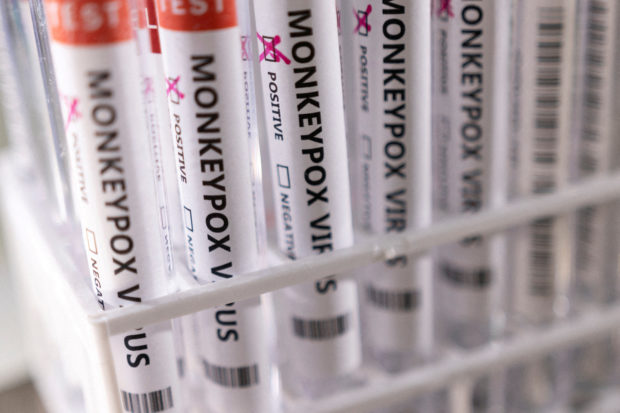U.S. CDC confirms evidence of local monkeypox transmission

Test tubes labelled “Monkeypox virus positive” are seen in this illustration taken May 22, 2022. (REUTERS/Dado Ruvic/Illustration/File Photo)
The U.S. Centers for Disease Control and Prevention (CDC) said there was evidence of local transmission of monkeypox, in addition to reports of cases where people had traveled abroad.
The cases are mainly occurring in men who have sex with men, but women are also getting infected, CDC staff member Dr. Agam Rao said at a panel meeting on Thursday.
Monkeypox, a viral infection that causes skin lesions, is endemic in certain parts of Africa. But the current outbreak has hit countries where the virus does not usually spread, sparking concern.
The CDC said had also been reports of transmission among family members and close contacts.
“We also heard worldwide about close contacts like close household members who through example shared bedding, towels, have acquired infection,” Rao said. “So it is not just through close intimate contact that this is being spread.”
Article continues after this advertisementThe lesions associated with the present outbreak are also smaller than those typical of classic monkeypox, according to the public health agency.
Article continues after this advertisementThe CDC last month published guidelines recommending the use of Bavarian Nordic’s Jynneos vaccine for laboratory personnel and other at-risk people, making another vaccine available in addition to Emergent BioSolutions’ ACAM2000.
Earlier on Thursday, New York City opened a temporary clinic to administer the two-dose Jynneos vaccine to eligible people who may have been exposed to monkeypox, including gay and bisexual men.
While there have been cases of heart inflammation called myocarditis associated with ACAM2000, no such cases have been reported yet after the use of Jynneos, the CDC said.
There is a limited supply of Jynneos and the agency is considering how to best use the supplies, it said.